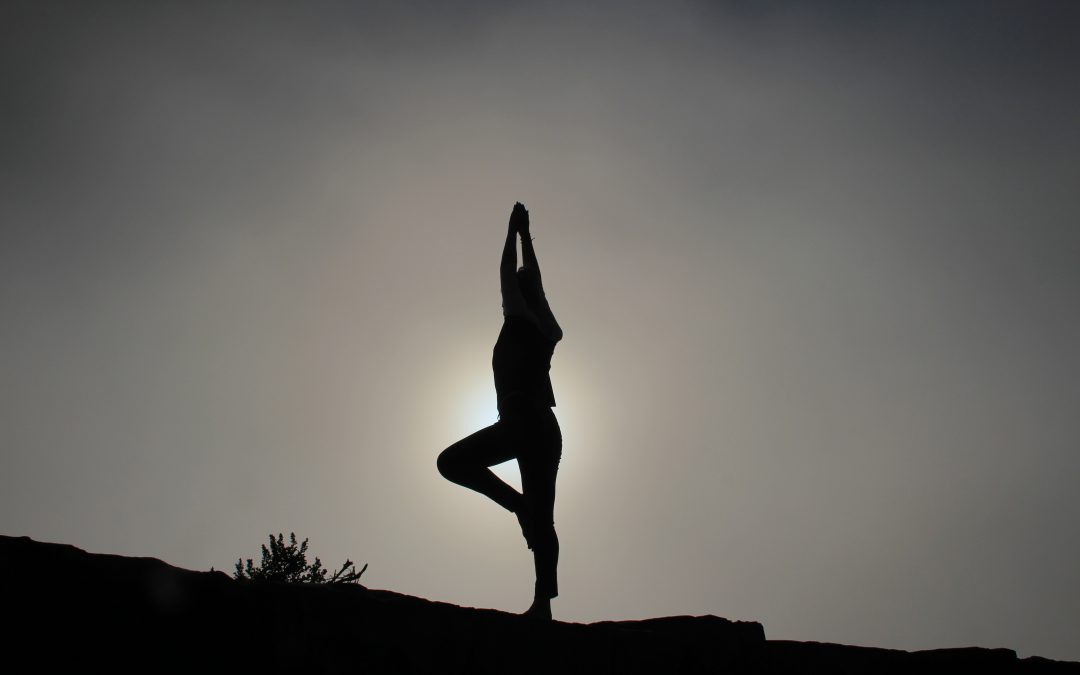Self-reflection is the process of consciously examining and evaluating one’s thoughts, emotions, and actions. It involves taking a step back from the daily hustle and bustle of life to gain a deeper understanding of oneself. The art of self-reflection allows us to delve into the depths of our being and explore our innermost thoughts, desires, and beliefs.
By reflecting on ourselves, we can gain valuable insights into our strengths, weaknesses, and areas for personal growth.
Why Self-Reflection is Important for Personal Growth
Self-reflection is an essential tool for personal growth. It provides us with an opportunity to learn from our experiences and make positive changes in our lives. By taking the time to reflect on our thoughts, feelings, and actions, we can identify patterns and behaviors that may be holding us back. This self-awareness allows us to make conscious choices and take proactive steps towards personal development.
Self-reflection also helps us gain a deeper understanding of ourselves and our values. It enables us to align our actions with our core beliefs, resulting in greater authenticity and fulfillment.
By reflecting on our goals, dreams, and aspirations, we can make conscious decisions that bring us closer to our true potential. Here are some of the benefits when practicing the art of self-reflection.
Enhances Mindfulness
You may become more attentive throughout the day by engaging in self-reflection. It encourages deeper reflection on events and enables you to comprehend the reasons behind your responses to various situations.
You’ll begin to comprehend your principles and what you want out of life as you begin to reflect more on yourself. Because you are aware of your desired outcome, you will become more conscious of your decisions.
Provides Clearer Viewpoints on Life
Self-reflection is a technique for examining your feelings and ideas. You may be able to see things more calmly and objectively as a result of it.
When you are feeling overburdened by something, this might be really helpful. Consider taking a moment to sit with your feelings and consider why you feel the way you do. You may feel relieved and that feeling may feel considerably lighter as a result.
Reflection enables you to identify what matters most since we frequently overestimate the importance of many issues.
Aids in Making Decisions
You will learn what truly important to you and what doesn’t as you utilize self-reflection to come to know yourself better. So you can choose how to respond to a situation more easily when you find yourself in it.
Did you know that our unconscious mind influences the majority of the decisions we make every day? In actuality, over 90% of our choices are unconscious ones! Isn’t that absurd?
That is why it is crucial to regularly reflect on oneself. It aids in ingraining your goals and ideals into your subconscious mind so that you may make unconsciously moral decisions.
Involves Slowing You Down
Everyone moves at the speed of light most of the time, including myself. We are busier and more exhausted than ever, and we frequently judge our value based on how much we do each day or how fast we complete tasks. Sadly, a lot of individuals come to see being busy as a badge of pride.
Instead, engaging in regular self-reflection exercises will encourage you to slow down and focus on the present. This makes it possible for you to enjoy the tiny things you do each day and reduces the likelihood that you will burn out.
Promotes the Celebration of Achievements
How frequently do you truly take the time to recognize your successes, no matter how small? There is always cause for celebration.
Did you get out of bed this morning before noon? What a success that is! Did you prepare a salad as opposed to grabbing some chips? That achievement is also something to be proud of.
You’ll realize you have many reasons to rejoice if you pause to think back on the previous day, week, or month.
The Benefits of Practicing Self-Reflection
Practicing self-reflection offers a multitude of benefits. Firstly, it enhances self-awareness, allowing us to recognize our strengths and weaknesses. This awareness empowers us to build upon our strengths and work on areas that need improvement. It also helps us understand how our thoughts and emotions influence our behavior, enabling us to make conscious choices that align with our values.
Self-reflection fosters personal growth by providing us with an opportunity to learn from our experiences. It allows us to analyze past actions and decisions, identify what worked well, and determine what needs to be changed. By reflecting on our mistakes and successes, we can gain valuable insights that guide us towards making better choices in the future.
Additionally, self-reflection promotes emotional well-being. It allows us to process and understand our emotions, leading to increased self-acceptance and self-compassion. By acknowledging and validating our feelings, we can cultivate a healthier relationship with ourselves and others.
Techniques for Effective Self-Reflection
To effectively engage in self-reflection, it is important to adopt techniques that suit your personality and preferences. Here are some techniques that can help you get started:
- Journaling: Writing down your thoughts, feelings, and experiences in a journal can be a powerful tool for self-reflection. Set aside a few minutes each day to reflect on your day, identify any challenges or successes, and explore your emotions. Write freely and without judgment, allowing your thoughts to flow onto the pages.
- Meditation: Practicing mindfulness meditation can help you cultivate a state of self-awareness and reflection. Find a quiet space, sit comfortably, and focus your attention on your breath. As thoughts arise, observe them without judgment and gently bring your focus back to your breath. This practice can help you become more attuned to your thoughts and emotions.
- Self-Questioning: Asking yourself thought-provoking questions can deepen your self-reflection. Consider questions such as “What are my core values?”, “What are my strengths and weaknesses?”, and “What actions can I take to align with my values?”. Reflecting on these questions can provide valuable insights into your true self.
How to Make Self-Reflection a Daily Habit
Making self-reflection a daily habit requires commitment and consistency. Here are some tips to help you integrate self-reflection into your daily routine:
- Set aside dedicated time: Designate a specific time each day for self-reflection. It can be in the morning, before bed, or during a quiet moment in your day. Consistency is key, so choose a time that works best for you and stick to it.
- Create a conducive environment: Find a quiet and comfortable space where you can reflect without distractions. Create an environment that promotes relaxation and introspection. You may consider lighting a candle, playing soft music, or surrounding yourself with items that inspire you.
- Start small: If you’re new to self-reflection, start with just a few minutes each day and gradually increase the duration as you become more comfortable. Starting small will make it easier to establish the habit and maintain consistency.
Exploring Different Methods of Self-Reflection
Self-reflection can take many forms, and it is important to find methods that resonate with you. Here are a few different approaches to self-reflection:
- Visual self-reflection: Use art, photography, or drawing to express your thoughts and emotions. Create a visual representation of your inner world, allowing your creativity to guide your reflection.
- Nature-based self-reflection: Spend time in nature and allow the beauty and tranquility of the natural world to inspire your reflection. Take a walk in the park, sit by the ocean, or hike in the mountains. Nature has a way of grounding us and providing clarity.
- Group self-reflection: Engage in self-reflection with others by participating in group discussions or workshops. Sharing your thoughts and experiences with others can provide different perspectives and insights.

Self-Reflection and Mindfulness
Mindfulness and self-reflection go hand in hand. Mindfulness is the practice of being fully present in the current moment, without judgment. By cultivating mindfulness, we can bring awareness to our thoughts, emotions, and actions, making self-reflection a more conscious and intentional process.
When practicing self-reflection through mindfulness activities, we are able to observe our thoughts and emotions without getting caught up in them. It encourages us to approach our reflections with curiosity and openness, rather than judgment or criticism.
With mindfulness, we can develop a deeper understanding of ourselves and cultivate a compassionate and non-judgmental attitude towards our inner experiences.
The Role of Self-Reflection in Unlocking Your True Potential
Self-reflection plays a crucial role in unlocking your true potential. It allows you to tap into your authentic self and align your actions with your deepest desires and values. By reflecting on your strengths, weaknesses, and aspirations, you can make conscious choices that propel you towards your goals.
Self-reflection also helps you identify and overcome self-limiting beliefs and patterns that may be holding you back. By gaining awareness of these obstacles, you can challenge and reframe them, opening up new possibilities for personal growth and success.
Furthermore, self-reflection provides a compass for navigating life’s challenges and decisions. By regularly reflecting on your experiences and choices, you can make adjustments and course corrections as needed, ensuring that you stay on a path that is true to yourself.
Self-Reflection Exercises for Personal Development
To facilitate your self-reflection journey, here are a few exercises you can try:
- Gratitude Journal: Each day, write down three things you are grateful for. Reflect on why these things bring you joy and appreciation. This exercise helps shift your focus towards the positive aspects of your life.
- Letter to Your Future Self: Write a letter to yourself, envisioning your ideal future. Reflect on your aspirations, dreams, and goals. This exercise can help you gain clarity on what you truly want and inspire you to take action.
- Strengths and Weaknesses Reflection: Make a list of your strengths and weaknesses. Reflect on how these qualities have influenced your life and how you can harness your strengths and work on your weaknesses.
Resources for Further Exploration of the Art of Self-Reflection
If you want to dive deeper into the art of self-reflection, here are some resources to explore:
- Books: “The Gifts of Imperfection” by Brené Brown, “The Power of Now” by Eckhart Tolle, and “The Artist’s Way” by Julia Cameron.
- Online Courses: “The Art of Self-Reflection” by Mindfulness.com, “Unlock Your True Potential Through Self-Reflection” by Udemy, and “The Science of Self-Reflection” by Coursera.
- Meditation Apps: Headspace, Calm, and Insight Timer offer guided meditations and mindfulness practices to support your self-reflection journey.
Conclusion: Embracing the Art of Self-Reflection for a Fulfilling Life
In a fast-paced and hectic world, the art of self-reflection provides us with a much-needed pause to connect with ourselves and unlock our true potential. By understanding ourselves on a deeper level, we can make conscious choices, cultivate self-awareness, and foster personal growth.
By embracing self-reflection as a daily habit, we open ourselves up to a world of possibilities. We gain insights, learn from our experiences, and make positive changes in our lives. The art of self-reflection is a powerful tool that allows us to live a more fulfilling and authentic life.
So, take a moment to reflect, connect with your inner self, and embark on a transformative journey of self-discovery. Embrace the art of self-reflection and unlock the limitless potential that resides within you.
Are you ready to unlock your true potential? Start your self-reflection journey today and discover the power of the art of self-reflection.

No comments! Be the first commenter?